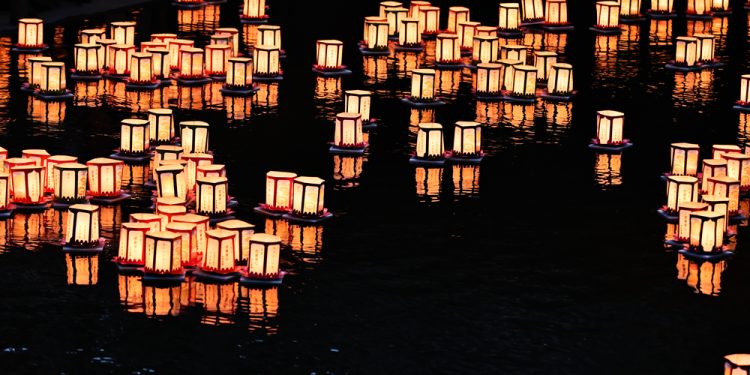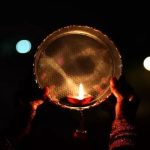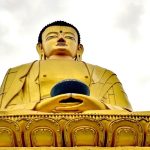
Obon
Obon is a day observed by Japanese Buddhists to honor the spirits of their ancestors. This day is known not only as Obon but also as Bon or Bon Obon. It originally began as a Buddhist custom but has quickly evolved into a holiday in which families hold reunions and take the opportunity to visit their ancestral homes. In Japan, it is one of the biggest holidays and is observed from the 13th to the 15th day of the seventh lunar month. This places it on or around August 15th on the Gregorian calendar. The Obon Festival lasts for approximately three days, and its starting date can vary from one region of Japan to the next. That is because some celebrations of this holiday are celebrated according to a lunar calendar, and others are celebrated according to a solar calendar. For example, Shichigatsu Bon is observed on the solar calendar, which places it around July 15th. Hachigatsu Bon, on the other hand, is placed on the lunar calendar, and that makes it around the 15th of August.
The History of Obon
The origin of Obon can be traced back to the story of Maha Maudgalyayana, a disciple of Buddha who used his magical powers to look back upon his deceased mother. While observing her, he learned that she had fallen into the Realm of Hungry Ghosts and needed help. He decided to visit Buddha and ask what could be done to release his mother from this realm.
The advice Buddha gave him was simple. He told him to make offerings to the Buddhist monks on the 15th day of the seventh month. When he did that, his mother was soon released from the Realm of the Hungry Ghosts. It was at this time that he was also able to view her selflessness and learned all that she had sacrificed for him. He was so happy his mother was released, and that he now had a new understanding of his mother, he began to dance with joy.
Facts About Obon & The Obon Celebration
Obon is a rich and storied tradition in Japan, so we felt that we couldn’t just leave this holiday celebration with only a couple of paragraphs of text. We decided to go a little bit deeper into the history and traditions of this holiday. Below are some of the factoids we’d like to share with our readers about this Japanese summer celebration.
- The name of this festival loosely translates to “Festival of the Dead.”
- In Tokyo, Obon is celebrated around the 15th of July. In other parts of the country, it’s celebrated around the 15th of August.
- On the first day of Obon, small flames are lit outside people’s homes. This is known as the Obon Light.
- People also perform elaborate dances that are known as Obon Odori.
- According to legend, performing the dance of Obon Odori frees one’s ancestors from suffering.
- Food offerings known as Ozen are shared with the dead. These foods can include sweets, tea, fruit, and rice.
- After rituals and ceremonies performed at home, people often visit the graves of their ancestors.
Obon Customs & Traditions
Besides reuniting with family, visiting ancestral sites, and cleaning the graves of their ancestors, the Japanese also celebrate in a variety of other ways. They hang lanterns outside their homes to guide their ancestors’ spirits and perform dances called Bon Odori. They also place food on altars both in their homes and at their temples. At the end of the Obon celebrations, the Japanese will then put floating lanterns onto the seas, lakes, or rivers. This is supposed to guide the spirits back to the world of the dead.








